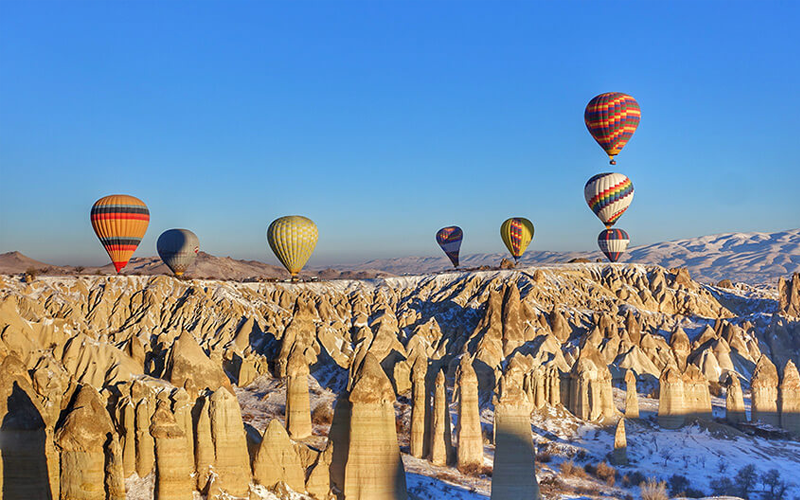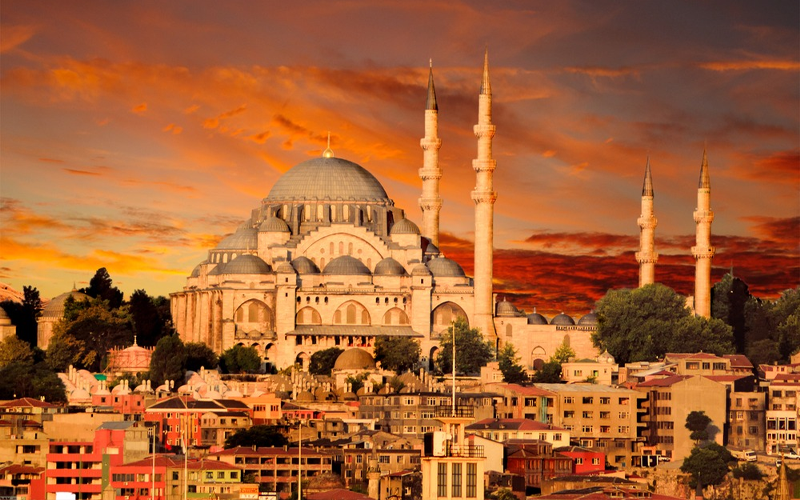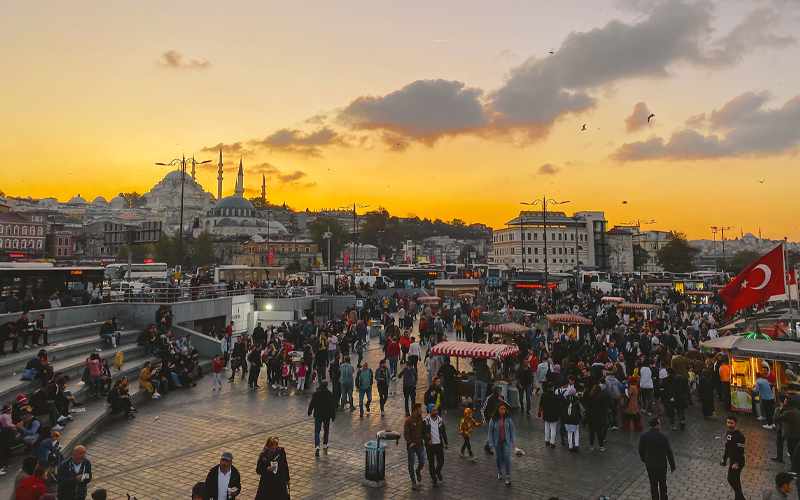Formerly the heart of the Ottoman Empire, Turkey still remains a melting pot of cultures. Combine its historical cities with miles upon miles of sparkling coastline, add incredible natural landscapes to discover and very friendly people for an incredibly cool cocktail of a country.
There have been some issues recently, however, mainly to do with the Syrian conflict and the resulting terrorist attacks. These have consistently happened, all the way up into 2017. It’s no surprise that you’re probably wondering, “is Turkey safe?”
It’s a good question and we aim to answer it with this massive insiders guide on the best ways to stay safe in Turkey. At The Broke Backpacker, we’re all about traveling smart, so we want to give you the best tips to help you stay safe wherever you go.
We’re going to be covering a whole lot. You may be getting ready for a family trip to Turkey and you’re worried about terrorists (understandable), or maybe you want to travel to Turkey as a solo female and you’re not sure what to expect. Whatever you’re going for, our insider guide on staying safe in Turkey is here to help.
Is It Safe To Travel To Turkey?
As a rule, Turkey is safe for tourism. The country remains one of the most popular destinations around the globe. 40-45 million visitors come to its shores every year, with the vast majority experiencing no problems and enjoying their stays.
Maintaining a safe environment for foreign tourists is a top priority for Turkey and the majority of its population, as tourism is a major part of the country’s economy.
The country’s most popular tourist destinations, including Antalya, Cappadocia, and Istanbul, are generally safe. Nevertheless, travelers still need to remain vigilant.
For instance, tourists visiting any major attractions around the world, including those in Turkey, are advised to keep an eye on their belongings, to avoid street robbery and pickpocketing.
This simple piece of advice will keep travelers safe anywhere around the world, including Turkey.
Safety
There's an ongoing high threat of terrorist attacks in Turkey. Possible targets include tourist areas, transport networks, shopping malls, hotels and entertainment precincts. Be alert to possible threats, especially in public places or mass gatherings. Stay safe and be vigilant in large crowds. If you’re planning to travel to Turkey to commemorate Anzac Day, understand the risks and plan ahead. You should read our ‘Travel overseas for Anzac Day’ page for further information on attending the event.
The risk of violence and acts of war is high along the borders with Syria and Iraq. Threats include rocket attacks, terrorist attacks and kidnapping. If, despite our advice, you decide to travel to these areas, seek professional security advice.
Protests happen often in major cities. They can turn violent. Extremists have targeted political protests. Avoid large public gatherings.
Muggings and assaults are common, especially in Istanbul’s tourist areas. Avoid travelling alone, especially after dark. Be wary of new friends and acquaintances.
Food and drink spiking is an issue. Don't accept food, drinks, gum or cigarettes from strangers. Don’t leave your food or drinks unattended. Scams are common among restaurants, taxis and carpet traders. Be wary of friendly locals who offer to take you to a bar for food and drinks. Insist taxi drivers use the meter. Be wary of deals where a carpet trader offers to send you goods by post.
Drought conditions in some cities can affect water supply. Running water may not be available in many places, including in hotels and accommodation.
Is Turkey Safe to Visit Right now?
We believe that Turkey is safe to visit although we always advise caution and recommend you travel smart – especially in major cities.
There are some places you really shouldn’t go to. Anywhere within 10 kilometers of the Syrian border isn’t safe.
But Turkey is BIG on tourism. By big, we mean huge. In 2014, Turkey was the 6th most popular tourist destination in the world. The government is all about making sure the country is safe for tourists, so you’ll be a priority for them when you visit. It’s a big part of Turkey’s economy.
On another note, a couple of pretty sizeable earthquakes happened here in 2017, and these aren’t uncommon. As such, you will need to bear natural disasters in mind.
Overall Risk : High
Turkey is safe to visit if you avoid some parts of it - namely those near the border with Syria. You should be aware that tourist hotspots, restaurants, shops, and public transportation are places where most thefts and pickpocketing occur, and that violent crime exists here, too.
Transport & Taxis Risk : Low
Generally, transport in Turkey is rather safe and reliable, though if you're driving you should keep in mind that local drivers in the country are reckless and tend to ignore traffic rules and signs.
Pickpockets Risk : Medium
As for pickpocketing, it is a recurring concern on the streets of Turkey, especially Istanbul, which is a popular tourist destination, so be careful and hold your bags tightly by your side. Places, where you should watch out for pickpockets, are Taksim Square, Sultanahmet, the Grand Bazaar and the Spice Bazaar in Istanbul.




